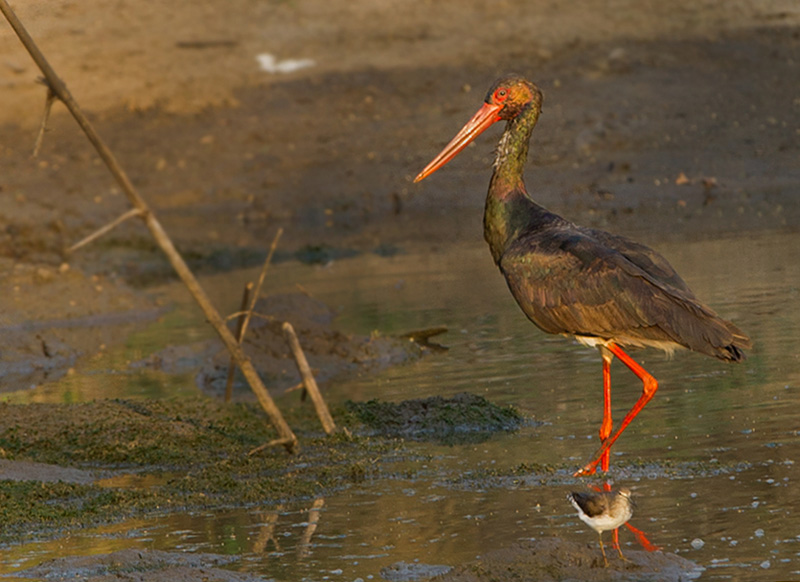
The Black Stork (Ciconia nigra) is an uncommon bird in South India. It is a winter visitor and considered to be rare in the Deccan. It has not been recorded in South India (Ali & Ripley, 2001).
However, over the last few years there have been several sightings in Karnataka. The bird has been seen in north Karnataka in the vicinity of Dandeli. In more recent times, there have been reports of a bird from Bangalore as well as along the Cauvery near Kanakapura. During the winter of 2012-13, the Black Stork has been seen at Galibore and Bheemeshwari along the Cauvery river in Cauvery Wildlife Sanctuary. The latest sightings (like the one photographed here) have been from waterholes in Nagarahole Tiger Reserve (Rajiv Gandhi National Park). It has also been reported from the adjoining Bandipur National Park. There have been several reports from Tamil Nadu as well.
Perhaps, the presence of the bird in South India has been overlooked in the past. These sightings by bird enthusiasts over a period of time will give us a better understanding about the distribution of the Black Stork.
This stork inhabits water-bodies in forested areas from sea-level to low hills where it forages in pools, marshes and shallow streams, primarily for fish. It also is known to feed on amphibians, crabs, snails, insects besides other organisms.
Taking into several factors like distribution and population, the conservation status of the Black Stork is considered to be one that of Least Concern.
S Karthikeyan, chief naturalist of Jungle Lodges & Resorts, helped compile this report.

 CI is a non-profit, non-commercial portal that aims to facilitate wildlife and nature conservation by providing reliable information and the tools needed to campaign effectively.
CI is a non-profit, non-commercial portal that aims to facilitate wildlife and nature conservation by providing reliable information and the tools needed to campaign effectively.